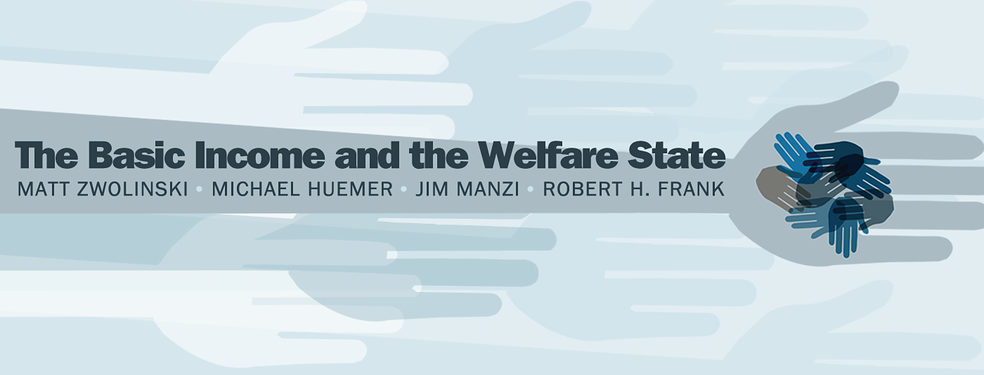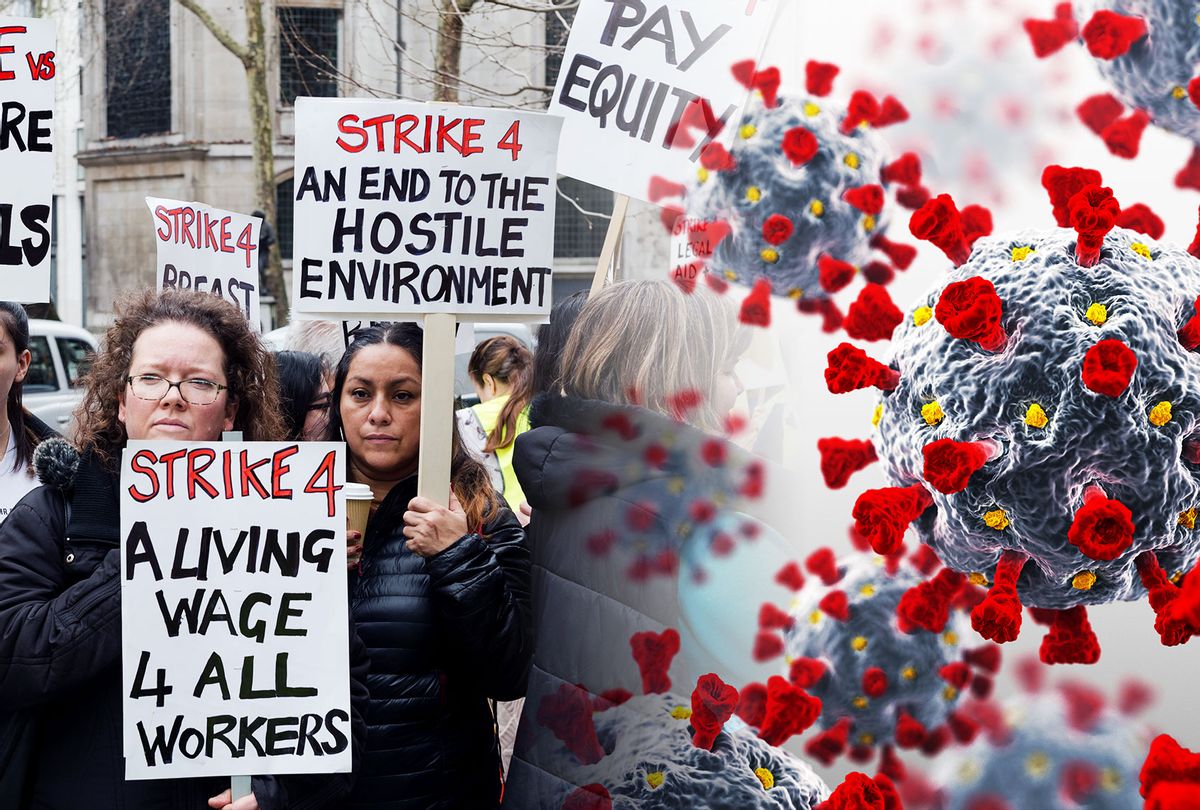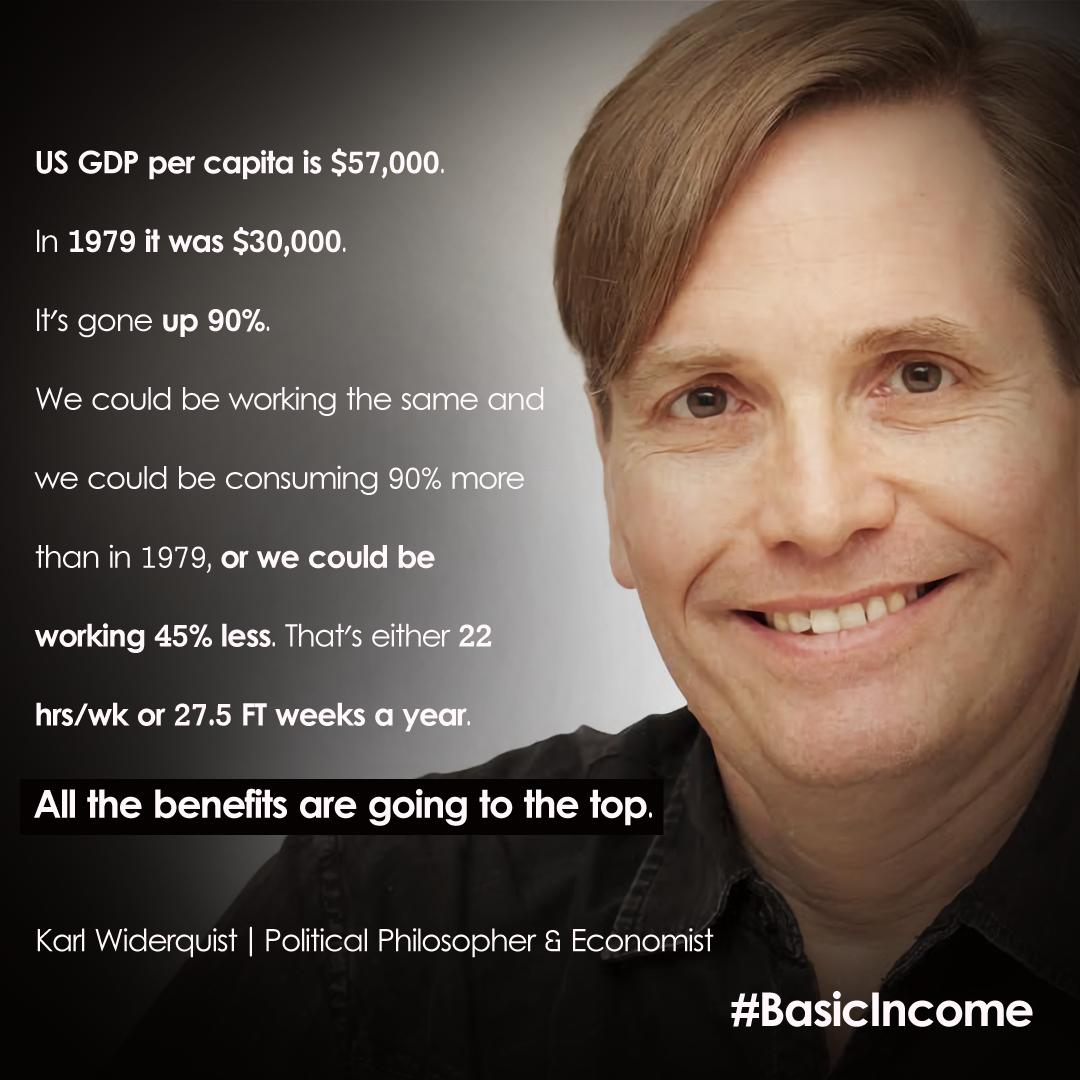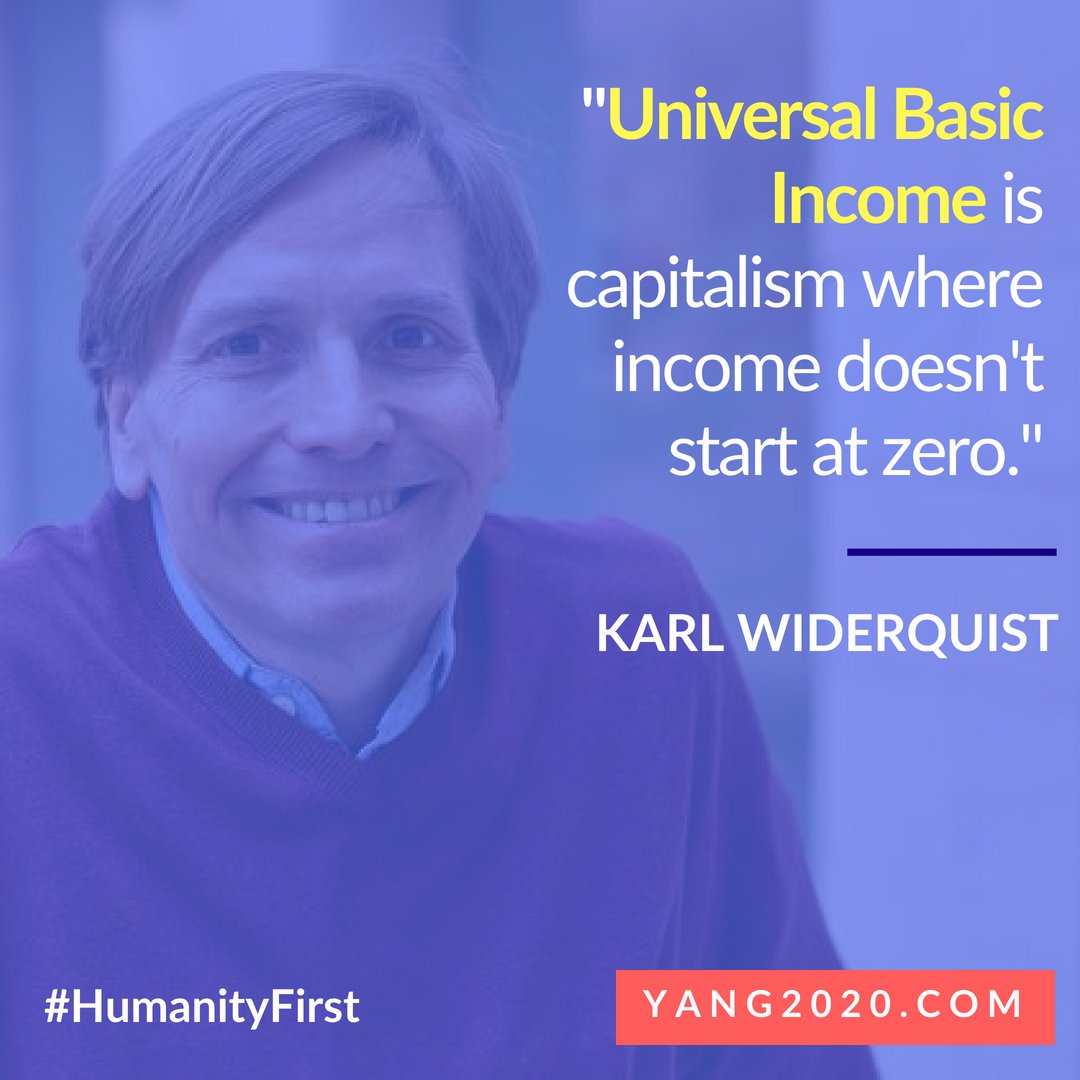
by Jelena Vitic | Aug 2, 2018 | News, Research
Picture credit to: iStock
The start of the longest and largest Universal Basic Income (UBI) experiment in Kenya and the approaching end of the trial in Finland spark a new discussion among experts on the effects of ‘no-strings attached’ money transfers.
An article published in Nature in May 2018 discussed the importance of randomized trials in informing researchers and policy makers alike about the feasibility of an UBI scheme. The article states that critics of the currently employed conditional welfare systems believe that the limited results do not justify large administrative costs that come with such policies. Some policy-makers see UBI as a more affordable alternative that has more potential to alleviate poverty, according to the article, but the costs and benefits of UBI schemes still have not been clearly identified. With that in mind, many decision makers prefer to employ a data-driven approach by making randomized trials, the most universally accepted method of gathering information about the effects of UBI. However, even supporters of the evidence-based approach claim that designing and conducting UBI trials comes with its own set of difficulties. They point out that it requires a large amount of planning and researchers need to look for benefits in a wide variety of areas such as health, education, nutrition and job-seeking. Furthermore, lack of standardized goals and agreed upon areas of impact pose another challenge for advocates of UBI trials.
Damon Jones, an economist at the University of Chicago believes that even clearly demonstrated benefits will not necessarily indicate that UBI would work in practice. He arguments that most resources for the trials come from private funds and only include a small portion of the population. Hence, he thinks trials do not say much about the affordability of big government programs and the willingness of people to fund them through tax increases. On the other hand, he adds that despite these inherent limitations research still should be done.
Others propose that trials have an ongoing impact on UBI discussions. Rob Reich, a political scientist at California’s Stanford University thinks trials will help researchers identify flaws in the process, refine goals and impact areas as well as provide policy makers with some answers they are looking for. Furthermore, supporters argue that over time the studies will provide more insight on the costs and benefits of guaranteed income schemes. Proponents of UBI trials recognize that despite being important, updating research is expensive.
On the other hand, Quartz interviewed experts that expressed doubt whether randomized trials are the best option for analyzing the effects of UBI in the first place. According to Karl Widerquist, many effects will play out over the years and will not be revealed during the experiment, regardless of its size and cost. Nonetheless, he notes there is very little downside to trying it out. Others believe that the benefits have already been proven by initiatives such as Alaska’s Permanent Fund Dividend and there is no need for more research. Matthew Zwolinski adds that UBI has to be “robust enough to survive the political process”, meaning that he sees gradual changes having a higher likelihood of being implemented, compared to radical policies.
Although opinions differ, supporters hope that big trials like the one in Kenya will open the door for future research and help the discussion move forward.
More information at:
Carrie Arnold, “Nature: Money for nothing: the truth about universal basic income”, Nature, News Feature, May 30th 2018
Kate McFarland, “Overview of current basic income related experiments (October 2017)”, Basic Income News, October 19th 2017
Kate McFarland, “US/KENYA: GiveDirectly Officially Launches UBI experiment”, Basic Income News, November 17th 2017
Olivia Goldhill, “We’re giving up on universal basic income before the evidence is in”, Quartz, May 29th 2018
by Karl Widerquist | Aug 1, 2018 | Opinion, The Indepentarian
This essay was originally published on Basic Income News in August 2014.

The right-libertarian journal, Cato Unbound, has published a 4-party debate on Basic Income Guarantee (BIG) this month. Matt Zwolinski started it off with a second-best or pragmatic argument for BIG. He doesn’t say outright that BIG is better than many right-libertarians most favored policy of eliminating of all redistribution of property, but he argues that BIG is far superior to the complex and inefficient system that characterizes the current welfare system.
Manzi’s response stems from standard for the property-rights-with-no-exceptions version of libertarianism. In a nutshell, BIG would probably reduce how much propertyless people work for people with property; therefore, necessarily, it is bad. He dismisses Zwolinki’s argument that work disincentives can be a good thing by labeling it “subjective” and “value-laden,” without noting that a subjective and value-laden argument can only be countered by another subjective and value-laden argument, which he does not offer. He just assumes any and all work disincentives are bad. So, he doesn’t actually lay a glove on Zwolinski’s argument.
The closest he comes to explain the values that led him to the belief that all work disincentives are bad is to say that BIG has always been unpopular in the United States. Yet, to say something is unpopular is not say whether it is a good or bad thing. It doesn’t say whether we should try to change people’s minds about it. At any time in American history up until five or maybe ten years ago, he could have made the same argument against same-sex marriage. Now it’s popular; thanks to people worked hard to change other people’s minds. Is BIG or anything else worthy of a similar effort? Manzi implies that nothing that is currently unpopular is ever worth the effort to change people’s minds.
Manzi mentions my article, “A Failure to Communicate: What (If Anything) Can we Learn From the Negative Income Tax Experiments,” but doesn’t actually engage with its arguments about work disincentives. One argument is that any decline in work effort would—by standard theory—cause an increase in wages partly counteracting the decline in work effort and further increasing the incomes of the working poor—presumably the people a BIG is supposed to help.
Another argument in that article is that the “decline” in work effort was only relative—the experimental group vs. control group. But the experiments also found whether people were in the experimental or control group was not the primary causal factor determining whether they worked or not. The macroeconomic health of the economy was more important in determining how much a person worked than whether or not they received a BIG. Therefore, the experiments indicated that if you have a strong macroeconomy, you can have both BIG andhigh employment. People who received a negative income tax took more time to find the right job, but in all the experiments, if good jobs were available, people took them. If you want propertyless people to work for the owners of property whether or not jobs pay decent wages or provide good working conditions, then the absence of BIG or anything like it is what you should favor. If you want all jobs to be good jobs, BIG is the policy to favor.

Cato Unbound
Another of the main arguments in my article was that, without foundation, many people responded to the evidence of a relative decline in work effort by making a subjective and value-laden assumption that all reductions in work effort are necessarily a bad thing. Manzi makes that very assumption and does not explain—much less defend—the subjecctive foundations underlying his assumption.
It’s what he leaves out, what he doesn’t call attention to, that is the real problem in Manzi’s article. Typical of some brands of right-libertarianism, it’s from a tradition of newspeak. He’s for slavery and he calls it freedom. It’s perhaps unfair to hang all of the rest of what I have to say on Manzi, but it is a common position running throughout a great deal of right-libertarian literature from Nozick and Rothbard and many, many others. Manzi’s essay, by the absence of its foundations, is a good example of how successfully this argument has become taken for granted—not just among right-libertarians but in mainstream political dialogue.
In the rights-based libertarian tradition, a situation in which one group of people has no other option but to work for another group of people is called “freedom” as long as that other group of people are called “property owners” and the working class is propertyless. I call it slavery, but to right-libertarians the opposite is slavery. Any redistribution to relieve people from forced work is supposedly reduces freedom; it’s even “on par with forced labor,” in Nozick’s words. If property owners give jobs or charity to the propertyless, that’s “voluntary” and consistent with freedom, but if the government taxes and redistributes property that’s “force,” “coercion,” and “interference” which supposedly violates negative freedom.
How did these propertyless people get into the position in which they have to work for the propertied? Over a long history, property owners use the force of the legal system to force, coerce, or interfere with other people, establishing “property rights” without the consent of or compensation for the people they thereby force into a state of propertyless. Before property rights, all were free from interference to use the resources of the Earth as they wished; under the type of property rights we have today and under the ideals envisioned by right-libertarians, “property owners” are free to interfere with any use the propertyless might make of the Earth’s resources. When everything is owned by someone else, the propertyless lose so much liberty that they’re unfree to work for themselves. They’re effectively born in debt, owning their labor to the to at least one member of the group that owns property. They face interference with anything in the world they might do for themselves unless and until they accept a subordinate position to a property owner? Doesn’t that make them unfree in the most negative sense of the term?
Right-libertarians usually get around this question by definitional fiat. The interference the rich do to the poor, when they say “We own the Earth and you don’t,” simply doesn’t count. It’s not interference because it doesn’t violate your rights. You have no right to the land; therefore, you have no right to be free from laboring for the people who do, and so we don’t even call it a loss freedom when use the force of the legal system to maintain that situation. The poor are always born in debt, every generation owing their labor to the propertied group, but that doesn’t make them “unfree” because they have no right to be free from being born into debt. I hope this makes my allegation of right-libertarian “newspeak” clear.
Of course, right-libertarians tell us that they defend property rights because they believe in freedom. Now we see that they’re simply defining freedom as the defense of the property rights system they want to see. This is why I think it is fair to use to term tautological libertarianism to describe versions of it that simply define freedom as the freedom do what you have the right to do. They argue we must have libertarian property rights so we can be free, but libertarian freedom turns out to be defined as nothing but the exercise of property rights so defined. Or they argue that we must define property rights this way so that people can be free. And around and around the logical circle we go. Not all libertarians (or even all right-libertarians) take the tautological shortcut, but far too many of them do. A circular argument can appear very powerful if you don’t reveal the whole circle at once. One paper argues this: we must have the definition of property rights because freedom is important. Another paper argues this: we must have this definition of freedom because property rights are important. If you show only one argument at a time, it appears powerful. You put both arguments together, and you have no argument at all. The less of the logic you see, the more powerful the argument appears to be.
You would need a powerful argument to explain why interfering with the propertyless in such a way as to put them effectively in debt to the upper class simply doesn’t count as a violation of freedom. And such an argument could only be subjective and value laden. But if the treatment of property ownership as synonymous with freedom is pervasive enough, you never have to make that argument. You can take it for granted.
Manzi expects his readers to take that kind of argument—or some other subjective and value laden argument—for granted when he assumes that any reduction in the number of hours the propertyless are forced to work for the propertied group is necessarily a bad thing. That’s slavery caused by the application of force, interfering with negative freedom of individuals to do things for themselves. He can call it freedom if he wants, but it’s still slavery.
-Karl Widerquist, Virginia Beach, VA (revised Roanoke, VA), August, 2014

by Jurgen De Wispelaere | Jul 28, 2018 | News
The 2018 BIEN Congress, held in Tampere on 24-26 August, has released its revised conference program. In addition to a wide variety of panels and papers covering recent academic and policy discussions on basic income, the program features a series of exciting plenary speakers, including a plenary roundtable on basic income experiments and an opening address by Tarja Halonen, the former President of Finland.
For the first time in the history of BIEN congresses, on the 24th and 25th of August, the Tampere congress also hosts Basic Income in Motion, a film festival featuring more than a dozen films and documentaries on basic income running alongside the congress. Participants are also invited to participate in the Nordic Day on the 23rd of August and discuss recent advances in basic income with members of the different Nordic basic income networks, plus a public lecture by Rutger Bregman to promote the Finnish translation of his bestseller Utopia for Realists.
All events will take place on the main campus of the University of Tampere and are held in English.
The 5th of August deadline for registration is approaching fast! Don’t miss out and register as soon as possible and join us in Finland at the end of the August!
For questions, contact us at biencongress2018@gmail.com
Jurgen De Wispelaere, Pertti Koistinen and Roosa Eriksson
(on behalf of the BIEN2018 LOC)

by Andre Coelho | Jul 27, 2018 | News
Barack Obama. Credit to: CNBC.
Despite having failed to actually endorse basic income, for the second time, international media is portraying Barack Obama as a supporter. For instance, the Trumpet, a news depot that “seeks to show how current events are fulfilling the biblically prophesied description”, depicts Obama as a hard-core socialist, sending him an indirect message saying that “the Bible warns against a get-something-for-nothing mentality”. However, and apparently, being knowledgeable in clerical issues and having served in the Church of England ministry, hasn’t stopped Dr. Malcolm Torry from supporting and studying in detail the basic income policy.
Another online news service, the Independent Sentinel, which announces it “report[s] the news the media won’t”, blatantly calls Obama a communist. A communist who has “saddled us [in the United States] with the far-left system of healthcare which has been an expensive and failed experiment”. Considering the nature of the privatized-insurance based healthcare system in the US, Sweden’s healthcare could be called an extreme-far-left successful case study. This news article joints Barack Obama and former Greek minister Yanis Varoufakis as unrepented communists who promote basic income, a policy under which “people become enslaved to the State”.
The Mic reports the same event on a soberer tint. However, its post starts out by pointing that Obama “come[s] out in support of an economic policy that is far to the left of anything being proposed by most sitting U.S. politicians”. The writer and basic income Scott Santens once claimed that basic income was neither left or right (it’s forward), but apparently polarized politics is still very much popular in the US.
Quartz Africa reduces the focus on Obama’s reference to basic income itself, to highlight his speech on inequality, and his views on what should be the solution to humanity’s current crisis: an inclusive capitalism, “which protects collective bargaining, breaks up monopolies, enforces laws that root out corruption”. Unresolved remains Obama’s belief that “a job […] provides dignity and structure and a sense of place and a sense of purpose”, while saying in the same breath that “we’re gonna have to consider new ways of thinking about these problems, like universal income.”
In a CNCB article, on the other hand, a more cautious approach is taken concerning Obama, who is, arguably, a more fervent supporter of a job guarantee than a basic income. He his cited to have said that “the job of giving everybody work that is meaningful [will get] tougher, and we’re going to have to be more imaginative, […] to protect the economic security and the dignity that comes with a job”. The article also mentions Obama’s former vice-president Joe Biden, who basically supported that view integrally.
Whether former US President Barack Obama is a basic income supporter or not, it is rising to become one of the most debated issues in contemporary politics. Robert Reich, former President Clinton’s secretary of labor and ex-member of Obama’s transition advisory board, already looks at some sort of basic income policy as “inevitable”, along with tech moguls like Elon Musk. And that’s not only over the elite’s dome, it’s also among the average American citizen, whose support for the policy has been steadily increasing over the past few years, reaching almost half of the population according to recent polls.
More information at:
Karl Widerquist, “Obama speaks favorably about UBI but stops short of endorsing it (for the second time)”. Basic Income News, July 18th 2018
Andrew Miller, “Barack Obama Voices Support for a Universal Basic Income”, the Trumpet, July 19th 2018
S. Noble, “Barack Obama Promoted Universal Basic Income in South Africa”, the Independent Sentinel, July 18th 2018
A.P. Joyce, “Barack Obama signals support for a universal income”, Mic, July 17th 2018
Lynsey Chutel, “Barack Obama says the rich owe the world a huge debt”, Quartz Africa, July 17th 2018
Catherine Clifford, “Barack Obama suggests cash handouts be considered to address workforce challenges”, CNBC, July 18th 2018
André Coelho, “UNITED STATES: Joe Biden believes that jobs are the future, rather than basic income”, Basic Income News, September 23rd 2017
Catherine Clifford, “Ex-Labor Secretary: Some kind of cash handout ‘seems inevitable”, CNBC, July 13th 2018
André Coelho, “United States: American citizens support for UBI rises four times, compared to a decade ago”, Basic Income News, July 10th 2018

















 CIRS,
CIRS, 




 “
“
